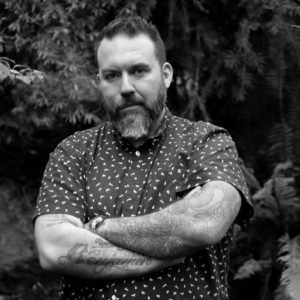When BC Liberal Langford-Juan de Fuca candidate Kelly Darwin graduated from Camosun’s Computer Systems Technology program in 2005, he never imagined he’d be running for office 15 years later.
“I don’t consider myself a politician,” he admits.
When the world took a turn due to the COVID-19 crisis, Darwin saw fit to step in. One of the main issues facing his riding is congestion and gridlock on Highway 1, near Colwood. It’s been a problem for as long as he can remember. Most people think that if you fix the highway, you fix the problem, says Darwin, but he has a different idea.

“We need to look at other options, like rail, like a better bus system,” says Darwin, also mentioning a passenger ferry from Royal Bay. “It’s a quick zip across the water to downtown.”
The City of Colwood approved plans in July of this year to put up 2,100 new housing units in the Latoria South portion of Royal Bay; Darwin says the ferry would help those people commute.
“I think if we take more of a fabric approach, almost a holistic approach, really, we take a whole bunch of little solutions and put them all together, we’re going to have a much better transportation infrastructure out here,” he says.
Darwin says that another option for commuting is to get the rail corridor up and running again.
“If they can make this work in Vancouver… surely we can get it from Langford to Victoria,” says Darwin.
Darwin says that government needs to be supporting businesses in helping them adapt and bringing their employees back to work.
“25 percent of businesses [across the province] say they won’t last the next 12 months, which is scary,” he says. “It’s the government’s responsibility to create an environment where businesses can adapt and thrive, and then they will create jobs.”
An example Darwin highlights in terms of what he is looking for from a government in power is funding for proper signage, plexiglass, and PPE.
“I’m really lucky to live and work in Langford, where our municipal government, very early on, recognized this and started with some small steps of support, but they were major steps, because we had that feeling like they had our back,” he says. “You walk around Langford and you’ll see the stickers on the floor that were actually provided by the municipality to help those businesses adapt and stay open. That’s the kind of support we need. I’m not seeing that on a provincial level. I think the federal level is doing a great job with the wage subsidy and the rent subsidy.”
Darwin says that looking to people who understand that “you can’t just throw around a billion here and a billion there” is key.
“Career politicians are great at making promises, but at the end of the day, you need people that understand what it’s like to pay rent, to make payroll, to pay their GST. We’re the ones that are going to be able to bring some practical common sense to the economy… Examples like the PST reduction for two years [zero percent for one year and then up to three percent until the economy recovers from COVID-19], I think that has way more clout in stimulating the economy than giving everybody a $1,000 cheque.”
